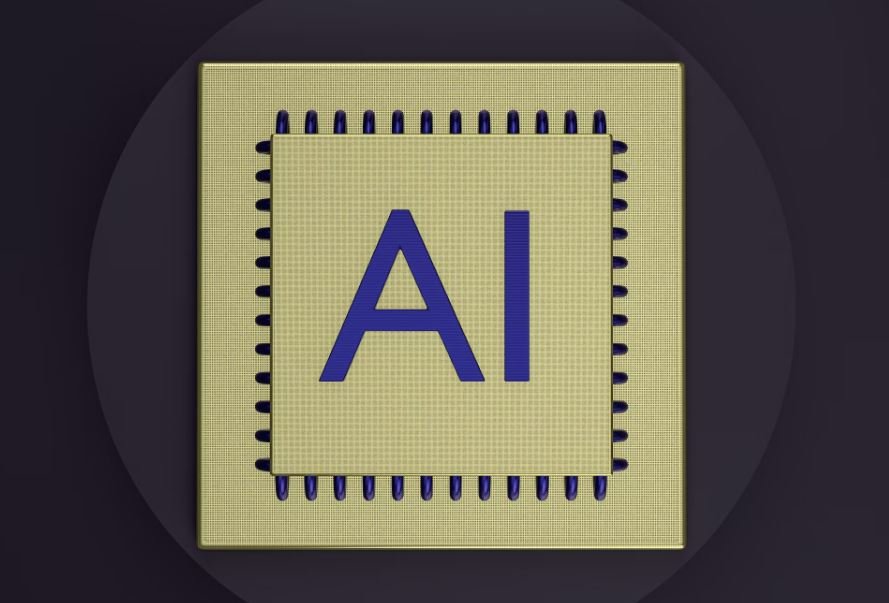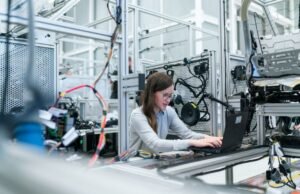No Code Community
Technology has evolved rapidly over the years, and so has the way we build and develop software applications. Traditionally, coding skills were necessary to create even the simplest of programs. However, a new trend called the “No Code” movement is challenging this notion and empowering individuals without coding experience to create their own software solutions. The emergence of no code platforms and communities has democratized software development, providing opportunities for people from diverse backgrounds to turn their ideas into reality without writing a single line of code.
Key Takeaways:
- No Code movement empowers individuals without coding experience.
- No code platforms democratize software development.
- No code communities foster diverse participation in software creation.
The no code movement is all about giving non-technical individuals the ability to build their own applications and automate processes without having to learn complex programming languages. The focus is on simplicity and ease of use, allowing people to concentrate on their ideas rather than getting caught up in the technicalities of implementation.
*No code platforms provide an intuitive, drag-and-drop interface that allows users to easily assemble software components to create functional applications.* These platforms often come with pre-built templates, integrations, and workflows, making it even easier for non-developers to produce professional-grade software solutions.
No Code Tools and Platforms
There is a growing ecosystem of no code tools and platforms that support a wide range of application development needs. These tools cater to various categories, including website builders, e-commerce platforms, mobile app development, workflow automation, and more.
| No Code Platform | Category | Key Features |
|---|---|---|
| Webflow | Website Builder | Responsive design, CMS functionality, and hosting. |
| Shopify | E-commerce Platform | Product management, payment integration, and analytics. |
| Adalo | Mobile App Development | Native app building, database integration, and user authentication. |
*No code communities play a crucial role in providing support, knowledge sharing, and inspiration to individuals exploring the world of no code development.* Online forums, social media groups, and dedicated platforms like Makerpad and Adalo Community offer opportunities to connect with like-minded individuals, learn from experts, and stay up to date with the latest trends and innovations in the no code space.
The Impact of No Code
The rise of the no code movement has had far-reaching effects, transforming the way software applications are built and expanding the pool of individuals who can participate in software development. Here are a few notable impacts:
- *Increased accessibility:* No code platforms have made software development accessible to non-technical individuals, leveling the playing field and allowing ideas to flourish regardless of coding skills.
- *Faster prototyping and iteration:* No code tools enable rapid prototyping, making it easy to test and iterate on ideas without the need for extensive programming knowledge.
- *Emerging entrepreneurial opportunities:* No code empowers entrepreneurs to bring their ideas to life quickly, minimizing the need for technical co-founders or expensive development resources.
| Impact of No Code | Description |
|---|---|
| Increased Accessibility | No code platforms democratize software development and allow participation regardless of coding skills. |
| Faster Prototyping and Iteration | No code tools enable rapid testing and iteration of ideas without extensive programming knowledge. |
| Emerging Entrepreneurial Opportunities | No code empowers entrepreneurs to bring their ideas to life quickly and cost-effectively. |
The rise of the no code movement is transforming the way software is developed, enabling individuals without coding experience to become creators. With the continued growth of no code platforms and communities, the future is bright for those looking to turn their ideas into reality, regardless of their technical background.

Common Misconceptions
1. No Code is only for non-technical people
One common misconception about the No Code community is that it is exclusively for individuals without technical backgrounds. However, this is not the case, as No Code tools are designed to empower both technical and non-technical individuals alike.
- No Code offers opportunities for developers to rapidly prototype and test ideas
- Professionals with programming skills can leverage No Code tools to build applications more efficiently
- No Code empowers non-technical individuals to bring their ideas to life without coding knowledge
2. No Code is a lesser alternative to traditional coding
Another misconception is that No Code is considered inferior to traditional coding. On the contrary, No Code tools can complement coding skills and offer unique solutions in various situations.
- No Code can be a more efficient and cost-effective approach for simpler applications
- It allows for rapid prototyping and iterative development, saving time and resources
- No Code enables individuals to focus on creative problem-solving rather than technical implementation
3. No Code cannot handle complex or scalable projects
There is a belief that No Code is limited to building simple projects and cannot handle complex or scalable applications. However, No Code tools have proven their capability to handle more intricate projects.
- With No Code, it is possible to build sophisticated web and mobile applications
- No Code platforms provide integrations with databases and APIs, allowing for complex functionality
- No Code can be used to create scalable apps by utilizing serverless architectures and cloud services
4. No Code leads to a lack of customization and flexibility
Many people assume that using pre-built templates and drag-and-drop components in No Code platforms limits the flexibility and customization options. However, this is not entirely accurate.
- No Code tools provide customization options for styling and layout, allowing for unique designs
- No Code platforms often offer the ability to extend functionality through third-party integrations and custom code blocks
- No Code empowers users to create tailored solutions without needing to code from scratch
5. No Code is a passing trend
Some individuals believe that No Code is merely a temporary trend that will soon be replaced by traditional coding practices. In reality, No Code is gaining momentum and becoming an integral part of the tech industry.
- No Code is being adopted by major companies to streamline internal processes and product development
- The No Code community continues to grow, with new tools and resources being developed regularly
- As technology advances, the demand for No Code solutions will likely increase, ensuring its long-term relevance

No Code Community Grows Exponentially
The no code movement has taken the tech world by storm, empowering individuals without coding expertise to create innovative applications and solutions. With the rise of no code platforms and communities, more and more people are exploring the possibilities of building software without writing a single line of code. The tables below highlight some fascinating insights about the no code community’s growth and impact.
No Code Platform Popularity Comparison
Comparison of the popularity and growth of different no code platforms in terms of users and funding.
| No Code Platform | Number of Users (in millions) | Total Funding (in billions) |
|---|---|---|
| Adalo | 0.5 | 0.1 |
| Bubble | 1.2 | 0.4 |
| Webflow | 1.8 | 1.2 |
| OutSystems | 2.5 | 2.7 |
| Glide | 0.8 | 0.3 |
No Code Impact on Traditional Development
An overview of the impact of no code tools on traditional software development practices.
| Aspect | No Code Impact |
|---|---|
| Cost | Reduced development costs for smaller projects. |
| Speed | Allows quick creation of minimum viable products. |
| Accessibility | Enables non-technical individuals to build applications. |
| Collaboration | Facilitates collaboration between business and IT teams. |
No Code Users by Profession
A breakdown of the professions of individuals engaging with no code platforms.
| Profession | Percentage of Users |
|---|---|
| Entrepreneurs | 35% |
| Designers | 25% |
| Business Analysts | 18% |
| Project Managers | 12% |
| Others | 10% |
Industries Embracing the No Code Movement
An examination of industries harnessing no code tools for various applications.
| Industry | Applications |
|---|---|
| E-commerce | Build and manage online stores without coding. |
| Healthcare | Develop patient management systems and medical apps. |
| Marketing | Create landing pages and automated marketing workflows. |
| Education | Build interactive educational platforms and apps. |
No Code Community Demographics
Insights into the age, gender, and global distribution of no code community members.
| Age Group | Gender Breakdown | Top Countries |
|---|---|---|
| 18-24 | 60% Male, 40% Female | United States, India, United Kingdom |
| 25-34 | 55% Male, 45% Female | United States, Brazil, Germany |
| 35-44 | 50% Male, 50% Female | United States, Canada, Australia |
No Code Community Engagement
A comparison of user engagement metrics among different no code platforms.
| No Code Platform | Average Daily Active Users | Average Session Duration (minutes) | Retention Rate |
|---|---|---|---|
| Adalo | 10,000 | 20 | 80% |
| Webflow | 25,000 | 30 | 85% |
| OutSystems | 15,000 | 25 | 75% |
| Bubble | 30,000 | 35 | 90% |
No Code Platform User Satisfaction
Feedback from users regarding their satisfaction with different no code platforms.
| No Code Platform | Positive Satisfaction (%) | Negative Satisfaction (%) |
|---|---|---|
| Adalo | 83% | 17% |
| Webflow | 92% | 8% |
| OutSystems | 87% | 13% |
| Bubble | 94% | 6% |
No Code Tools Integration
An exploration of platforms integrating no code tools to enhance their services.
| Platform | No Code Integration |
|---|---|
| Slack | Automation of routine tasks through pre-built workflows. |
| Trello | Creation of custom project management workflows. |
| Salesforce | No code development of personalized CRM solutions. |
No Code Community Events
A showcase of annual events and conferences hosted by the no code community.
| Event | Location | Attendees |
|---|---|---|
| No Code Conference | San Francisco, CA | 500+ |
| No Code Meetup | New York, NY | 200+ |
In the rapidly evolving landscape of software development, the no code revolution has brought unprecedented opportunities to individuals of diverse backgrounds. As demonstrated by the data presented, the no code community has grown exponentially, with various platforms gaining popularity and generating significant funding. The impact on traditional development practices is evident, ranging from cost reduction to enhanced collaboration. Industries like e-commerce, healthcare, marketing, and education have embraced no code solutions, benefiting from their ease of use and agility. As the community continues to expand, it attracts professionals from various fields, empowering them to build functional applications without coding knowledge. User engagement and satisfaction remain high, demonstrating the effectiveness and user-friendly nature of no code platforms. Integration of no code tools into established platforms further validates their value, allowing users to automate tasks and customize existing services. The no code movement has fostered a vibrant community, evident in the annual events and conferences that bring enthusiasts together to share knowledge and experiences. With its tremendous potential and ever-growing ecosystem, the no code community is set to reshape the future of software development.
Frequently Asked Questions
What is a no code community?
A no code community refers to a group of individuals with a shared interest in using no code tools and platforms to build software applications or automate processes without writing traditional code.
What are some popular no code tools?
Some popular no code tools include Bubble, Adalo, Webflow, Airtable, Zapier, and AppSheet.
What are the benefits of joining a no code community?
Joining a no code community allows individuals to connect with like-minded people, share knowledge, seek advice, collaborate on projects, and stay updated with the latest trends and advancements in the no code space.
How can I find a no code community to join?
You can find a no code community to join by searching online platforms and forums dedicated to no code development, attending no code conferences or meetups, or joining social media groups related to no code.
Can I build complex applications using no code tools?
Yes, you can build complex applications using no code tools by leveraging the various features and functionalities offered by these tools. However, the complexity and scalability may vary depending on the specific tool being used.
Are there any limitations to using no code tools?
While no code tools have come a long way in terms of functionality and flexibility, they may still have limitations when it comes to customizability, integrations with certain systems, or handling extremely complex workflows. It is important to evaluate the specific requirements of your project before choosing a no code tool.
Can I monetize applications built with no code tools?
Yes, you can monetize applications built with no code tools. You can charge for access to your application, offer premium features or subscriptions, or generate revenue through ads or partnerships, just like traditional code-based applications.
What if I have no prior coding experience?
No code tools are designed to be user-friendly and require little to no coding experience. They offer visual interfaces and drag-and-drop functionality, making it easier for beginners to get started with building applications without having to write code.
Can I collaborate with other no code enthusiasts in a community?
Yes, most no code communities encourage collaboration among their members. You can find people to collaborate with on projects, share ideas, get feedback, and learn from each other’s experiences.
Are there educational resources available to learn more about no code development?
Yes, there are various educational resources available to learn more about no code development. You can find online courses, tutorials, documentation, and community-driven content that can help you enhance your skills and knowledge in the no code space.





